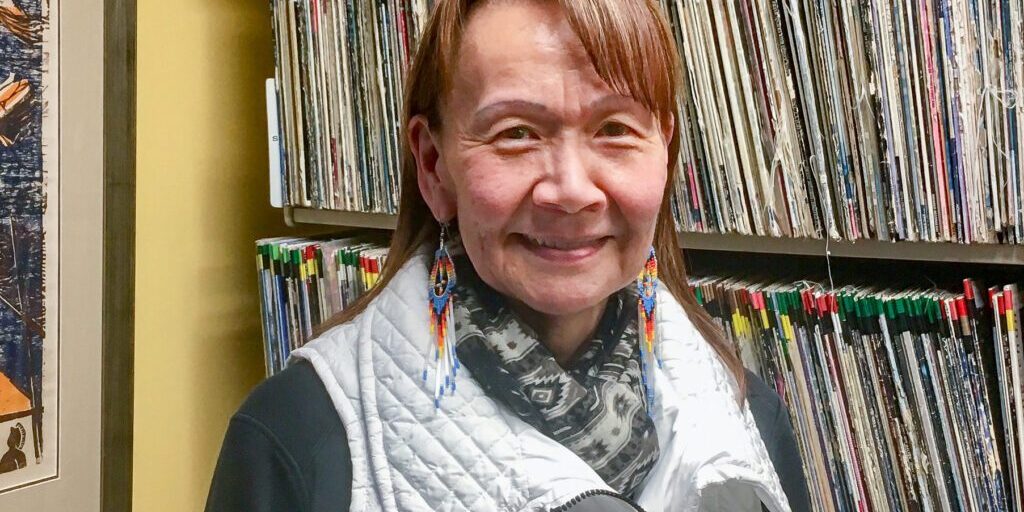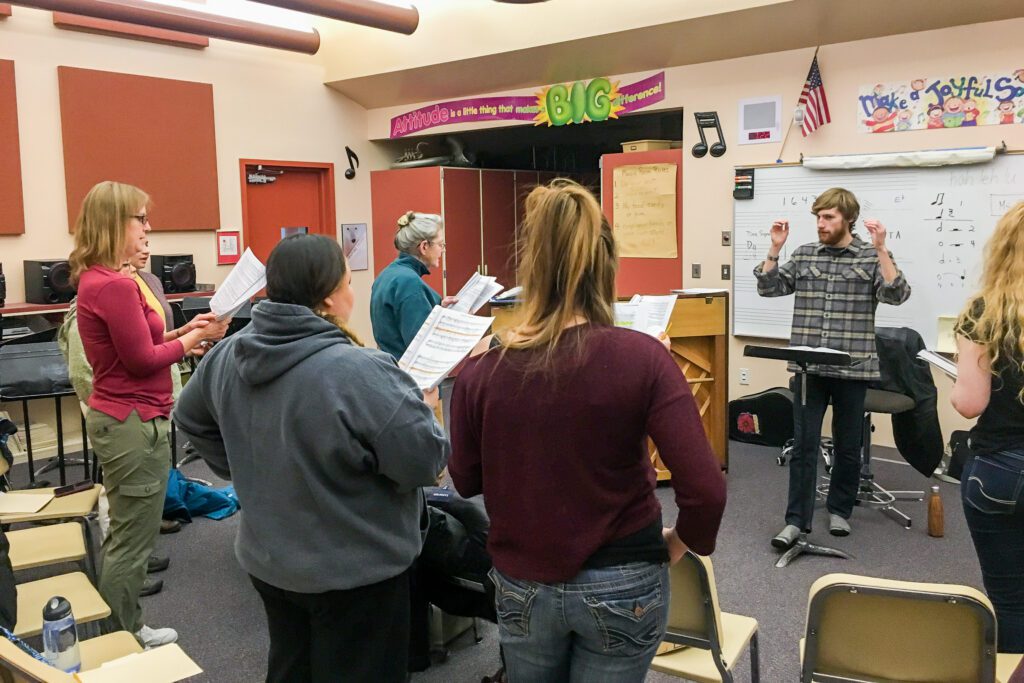“If I didn’t have faith, I couldn’t do this; it’s so personal and very difficult. But I can’t see myself doing anything else.” Vi Waghiyi (WAH-(uh)-hee) has spent the last 15 years advocating for Alaska Native communities, expressing concerns about environmental pollution, especially in rural Alaska.
Says Vi, “Those of us who live off the land and ocean, we’re among the most contaminated populations on the planet because of our reliance on subsistence foods. In our region, Little Diomede, because of their isolation, they eat the most traditional foods. And we’re behind them. 70-80% of our homes eat only traditional foods.”
Vi works for the organization ACAT, Alaska Community Action on Toxics, a nonprofit providing aid to communities around the state grappling with environmental contamination. She says, “I make sure that our research team members have respect for our community members and elders who have knowledge.”
She grew up in Savoonga, on remote St. Lawrence Island, when local mail was delivered by a team of sled dogs from a neighboring village.
Savoonga is on the front lines of ACAT’s longest-running project: evaluating exposure to polychlorinated biphenyls. Decades after the ban of PCBs, the pollution crisis on St. Lawrence Island was confirmed by medical tests: local residents had PCB levels six to ten times the national average. Fat-soluble PCBs can be absorbed by the bodies of seals, walruses, and whales — marine mammals crucial to the subsistence diet of Alaska Native communities. Once ingested, the food can contaminate residents and even pass from mothers to babies, whether in the womb or via breast milk.
Researchers, scientists, and ACAT representatives draw a connection between PCB pollution on St. Lawrence Island and rates of cancer among local residents. Vi, herself, is a cancer survivor; half of her family of eight has also had the disease.
Vi recently coordinated the Norton Sound Indigenous Women’s Gathering, a conference in Nome for women interested in addressing and raising awareness about environmental issues in the region. Why the focus on women? “It’s natural for women to be caretakers,” Vi says. “We nurture our children; we take care of our families. These women are leaders already; they just need a springboard.”
Vi relies on her faith to keep positive. “Our challenges are monumental. It’s like David and Goliath. I know that there’s a higher power. My parents had a solid faith. I was fortunate to learn from them and have trust in God. I still have hope in mankind.”
Vi Waghiyi’s work takes center stage in the December episode of KNOM’s Story49. To hear much more from this fascinating story your support brought to the airwaves, visit the Story49 episode page, right here at knom.org.
Image at top: Vi Waghiyi in KNOM studios. (Photo: Zoe Grueskin, KNOM.)








